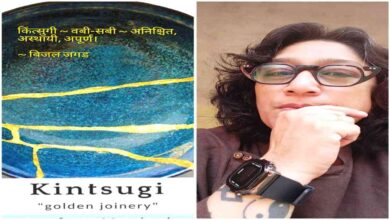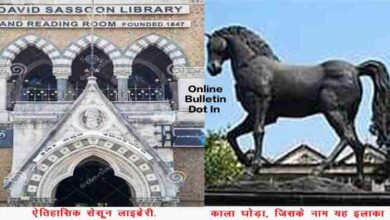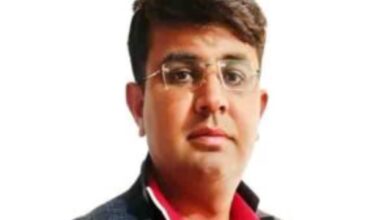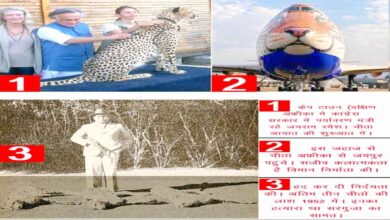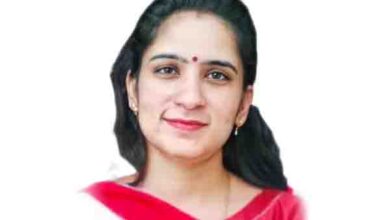मृत्यु का कारण बनती नकली और घटिया क्वालिटी की दवाएं mrtyu ka kaaran banatee nakalee aur ghatiya kvaalitee kee davaen

©डॉ. सत्यवान सौरभ
परिचय– हिसार, हरियाणा.
सबसे अधिक मात्रा में दवाइयां बनाने में भारत विश्व का तीसरा सबसे बड़ा देश है। देश में सबसे तेज गति से बढ़ रहे इस कारोबार के बढ़ने के साथ ही नकली और निम्न कोटि की दवाओं का अवैध कारोबार भी बढ़ रहा है और लोगों की जान पर खतरा बढ़ता जा रहा है। पिछले वर्ष एसोचैम ने अपनी रिपोर्ट में देश में बनने वाली कुल दवाओं का 25 प्रतिशत नकली और खराब गुणवत्ता वाली दवाएं बनने और बिकने का खुलासा किया था, जो विश्व की कुल नकली दवाओं का 35 प्रतिशत है।
डब्ल्यूएचओ के नए शोध के अनुसार, निम्न और मध्यम आय वाले देशों में अनुमानित 10 में से 1 चिकित्सा उत्पाद या तो घटिया है या गलत है। इसका मतलब है कि लोग ऐसी दवाएं ले रहे हैं जो बीमारी का इलाज या रोकथाम करने में विफल हैं। यह न केवल इन उत्पादों को खरीदने वाले व्यक्तियों और स्वास्थ्य प्रणालियों के लिए पैसे की बर्बादी है, बल्कि घटिया या नकली चिकित्सा उत्पाद गंभीर बीमारी या मृत्यु का कारण बन सकते हैं।
घटिया और नकली दवाएं विशेष रूप से सबसे कमजोर समुदायों को प्रभावित करती हैं। कल्पना कीजिए कि एक माँ अपने बच्चे के इलाज के लिए इस बात से अनजान है कि दवाएं घटिया हैं या गलत हैं, और फिर उस इलाज के कारण उसके बच्चे की मृत्यु हो जाती है।
विश्व स्वास्थ्य संगठन को घटिया या नकली उत्पादों के मामलों की 1500 रिपोर्ट मिली है। इनमें से मलेरिया-रोधी और एंटीबायोटिक सबसे अधिक रिपोर्ट किए जाते हैं। अधिकांश रिपोर्ट (42%) अफ्रीकी क्षेत्र से, 21% अमेरिका के क्षेत्र से और 21% यूरोपीय क्षेत्र से आती हैं। यह समस्या का एक छोटा सा अंश है और बहुत से मामलों की रिपोर्ट नहीं की जाती।
इनमें से कई उत्पाद, जैसे एंटीबायोटिक्स, लोगों के अस्तित्व और भलाई के लिए महत्वपूर्ण हैं। घटिया या नकली दवाओं का न केवल व्यक्तिगत रोगियों और उनके परिवारों पर एक दुखद प्रभाव पड़ता है, बल्कि रोगाणुरोधी प्रतिरोध के लिए भी खतरा होता है। जिससे दवाओं की चिंताजनक प्रवृत्ति में इलाज की शक्ति कम हो जाती है।
जालसाजी की समस्याओं में आज सबसे बड़ी चिंताओं में से एक है नकली दवा उत्पाद जो विश्व स्तर पर फैल रहे हैं, सीधे लोगों के स्वास्थ्य को प्रभावित कर रहे हैं और कभी-कभी मौत का कारण भी बन सकते हैं। ये नकली दवाएं न केवल गंभीर स्वास्थ्य के लिए खतरा पैदा करती हैं, बल्कि घटिया औषधीय उत्पाद उपभोक्ता आय को इसके लिए भुगतान करके बर्बाद कर देते हैं, जिसका कोई चिकित्सीय मूल्य नहीं है।
इसके अलावा, यह वैध दवा कंपनियों से बिक्री को विस्थापित करता है।रिपोर्टों से पता चलता है कि वैश्विक नकली दवा बाजार लगभग 200 बिलियन डॉलर का है और संयुक्त राज्य अमेरिका में खोए हुए संघीय और राज्य कर राजस्व के नौ बिलियन डॉलर के आर्थिक नुकसान के लिए जिम्मेदार है।
सबसे अधिक मात्रा में दवाइयां बनाने में भारत विश्व का तीसरा सबसे बड़ा देश है। देश में सबसे तेज गति से बढ़ रहे इस कारोबार के 55 बिलियन डॉलर तक पहुंचने के साथ ही नकली और निम्न कोटि की दवाओं का अवैध कारोबार भी बढ़ रहा है और लोगों की जान पर खतरा बढ़ता जा रहा है।
पिछले वर्ष एसोचैम ने अपनी रिपोर्ट में देश में बनने वाली कुल दवाओं का 25 प्रतिशत नकली और खराब गुणवत्ता वाली दवाएं बनने और बेचने का खुलासा किया था, जो विश्व की कुल नकली दवाओं का 35 प्रतिशत है। ऐसी दवाएं 1980 के दशक से लोगों के स्वास्थ्य और देश की अर्थव्यवस्था पर भारी प्रभाव के साथ दुनिया भर में एक बड़ी समस्या बनी हुई हैं।
गंभीर चिंताजनक मामले देखते हुए भारत सरकार नई दवाएं, चिकित्सा उपकरण और सौंदर्य प्रसाधन विधेयक 2022 बिल लाई है और यह बिल 1940 के ड्रग्स एंड कॉस्मेटिक एक्ट कानून को बदलने का प्रयास करता है, जिसमें बदलती जरूरतों और प्रौद्योगिकी के साथ तालमेल रखने के लिए सख्त नियम दिशा निर्देश दिए गए हैं।
वर्तमान में देश में बेचे जाने वाले लगभग 80% चिकित्सा उपकरण आयात किए जाते हैं, विशेष रूप से उच्च श्रेणी के उपकरण। इस विधेयक का प्राथमिक उद्देश्य यह सुनिश्चित करना है कि किसी देश में बेचे जाने वाले चिकित्सा उत्पाद सुरक्षित, प्रभावी और निर्धारित गुणवत्ता मानकों के अनुरूप हों।
चिकित्सा उत्पादों की सुरक्षित और प्रभावी बिक्री के मार्गदर्शन के लिए परमाणु ऊर्जा, विज्ञान और प्रौद्योगिकी, इलेक्ट्रॉनिक्स, और संबंधित क्षेत्रों जैसे जैव चिकित्सा प्रौद्योगिकी के क्षेत्रों के विशेषज्ञों के साथ एक वैधानिक चिकित्सा उपकरण तकनीकी सलाहकार बोर्ड स्थापित करने का प्रस्ताव रखा।
जिसमें उन्होंने चिकित्सा उपकरणों की अलग परिभाषा देते हुए नैदानिक उपकरण, इसका सॉफ्टवेयर, प्रत्यारोपण, विकलांग सहायता के लिए उपकरण, जीवन समर्थन, कीटाणुशोधन के लिए उपयोग किए जाने वाले उपकरण और कोई भी अभिकर्मक या किट शामिल किये हैं। विधेयक में राज्यों और केंद्रीय स्तर पर दवा प्रयोगशालाओं की तर्ज पर चिकित्सा उपकरण परीक्षण केंद्रों का प्रस्ताव है।
नया बिल क्लिनिकल परीक्षण या दवाओं और चिकित्सा उपकरणों की नैदानिक जांच के लिए केंद्रीय लाइसेंसिंग प्राधिकरण की अनिवार्य अनुमति का प्रस्ताव करता है। नैदानिक परीक्षणों में भाग लेने के दौरान घायल हुए व्यक्तियों और मृत्यु के मामले में, प्रतिभागी के कानूनी उत्तराधिकारी को मुआवजा देने का प्रावधान किया गया है।
विधेयक में विशेष रूप से कहा गया है कि केंद्र सरकार को दवाओं की ऑनलाइन बिक्री को विनियमित करने के लिए और ऑनलाइन फार्मेसियों के लिए “लाइसेंस या जारी अनुमति के अनुसार” संचालित करने के लिए नियमों के साथ आना चाहिए।
मसौदा विधेयक “मिलावटी” या “नकली” चिकित्सा उपकरणों के लिए कारावास या जुर्माना के प्रावधानों को परिभाषित करता है। नकली दवाएं उन उपभोक्ताओं के लिए प्रमुख स्वास्थ्य जोखिम और सुरक्षा खतरे पैदा कर सकती हैं जो कम गुणवत्ता वाले नकली उत्पादों का शिकार होते हैं, अनधिकृत दवाओं को देखने में असमर्थ होते हैं। इसके अलावा, इन उपभोक्ताओं को उन जोखिमों के बारे में भी पता नहीं है जो उन्हें पैदा कर सकते हैं।
खराब गुणवत्ता और नकली फ़ार्मास्यूटिकल उत्पाद कई लोगों को विभिन्न तरीकों से प्रभावित कर सकते हैं. नागरिकों को निर्णय लेने में भाग लेने के अधिकार की गारंटी देने के लिए एक आधुनिक नियामक प्रणाली तैयार की जानी चाहिए। नियामक प्रक्रिया में नागरिकों की भागीदारी को सक्षम करने और अपनी आपत्तियां दर्ज करने के लिए सार्वजनिक सुनवाई या नागरिक याचिका जैसे कानूनी रास्ते बनाने की आवश्यकता है।
ऑनलाइन फार्मेसी जैसे आधुनिक खरीदारी मॉडल आसानी से नियामक निरीक्षण को दरकिनार कर सकते हैं। ये आज विशेष रूप से लोकप्रिय हैं, लेकिन घटिया या नकली चिकित्सा उत्पादों की बिक्री के अनुपात और प्रभाव को निर्धारित करने के लिए और अधिक शोध की आवश्यकता है। वैश्वीकरण चिकित्सा उत्पादों को विनियमित करना कठिन बना रहा है।
कई फाल्स फायर विभिन्न देशों में पैकेजिंग का निर्माण और प्रिंट करते हैं, शिपिंग घटकों को एक अंतिम गंतव्य तक पहुंचते हैं जहां उन्हें इकट्ठा और वितरित किया जाता है। कभी-कभी, नकली दवाओं की बिक्री को सुविधाजनक बनाने के लिए विदेशी कंपनियों और बैंक खातों का उपयोग किया गया है।
यह एक वैश्विक समस्या है, इसलिए सभी देशों को इस समस्या की सीमा का आकलन करने और इन उत्पादों के यातायात को रोकने और पहचान और प्रक्रिया में सुधार करने के लिए क्षेत्रीय और विश्व स्तर पर सहयोग करने की आवश्यकता है। सरकार ने नकली दवाएं बेचने और बनाने वालों को फांसी देने का प्रावधान शामिल कर दिया, लेकिन विशेषज्ञ बताते हैं कि सरकार की ओर से निगरानी और जांच-पड़ताल की कमी के कारण यह धंधा परवान चढ़ रहा है। इन पर निगरानी रखने वाले संस्थान हमेशा दवाओं की गुणवत्ता की जांच और नकली दवाओं के कारोबारियों की नाक में नकेल नहीं कस रहे हैं।

Dr Satywan Saurabh
Fake and substandard medicines that cause death
India is the third largest country in the world in manufacturing the largest quantity of medicines. With the growth of this fastest growing business in the country, the illegal business of counterfeit and substandard drugs is also increasing and the danger to the lives of people is increasing. Last year, Assocham, in its report, had disclosed that the manufacture and sale of counterfeit and poor quality drugs account for 25 per cent of the total drugs manufactured in the country, which is 35 per cent of the world’s total counterfeit drugs.
An estimated 1 in 10 medical products in low- and middle-income countries are either substandard or misbranded, according to new WHO research. This means that people are taking drugs that fail to treat or prevent disease. Not only is this a waste of money for the individuals and health systems who buy these products, but substandard or counterfeit medical products can cause serious illness or death.
Substandard and counterfeit medicines particularly affect the most vulnerable communities. Imagine a mother seeking to treat her child, unaware that the drugs are substandard or wrong, and then her child dies as a result of that treatment.
The World Health Organization has received 1500 reports of cases of substandard or counterfeit products. Of these, anti-malarials and antibiotics are the most commonly reported. The majority of reports (42%) come from the African region, 21% from the Americas region and 21% from the European region. This is only a small part of the problem and many cases go unreported.
Many of these products, such as antibiotics, are vital to people’s survival and well-being. Substandard or counterfeit drugs not only have a tragic effect on individual patients and their families, but also threaten antimicrobial resistance. Due to which the worrisome tendency of drugs reduces the power of treatment.
One of the biggest concerns among counterfeiting problems today is counterfeit pharmaceutical products that are spreading globally, directly affecting people’s health and sometimes even causing death. These counterfeit drugs not only pose serious health hazards, but substandard medicinal products waste consumer income by paying for it, which has no medical value.
In addition, it displaces sales from legitimate drug companies. Reports suggest that the global counterfeit drug market is worth about $200 billion and the United States has an economic loss of $9 billion in lost federal and state tax revenue. is responsible for.
India is the third largest country in the world in manufacturing the largest quantity of medicines. With the fastest growing business in the country reaching $55 billion, the illegal business of counterfeit and substandard drugs is also increasing and people’s lives are being threatened.
Last year, Assocham, in its report, had disclosed that manufacturing and selling of counterfeit and poor quality medicines account for 25 per cent of the total drugs manufactured in the country, which is 35 per cent of the total counterfeit medicines in the world. Such drugs have been a major worldwide problem since the 1980s with a huge impact on people’s health and the country’s economy.
In view of serious concern, the Government of India has brought in the New Drugs, Medical Devices and Cosmetics Bill 2022 Bill and this bill seeks to replace the Drugs and Cosmetics Act of 1940 with strict rules to keep pace with the changing needs and technology. Guidelines have been given.
Currently, about 80% of the medical equipment sold in the country is imported, especially the high-end equipment. The primary objective of the bill is to ensure that medical products sold in a country are safe, effective and conform to prescribed quality standards.
Proposed to set up a statutory Medical Devices Technical Advisory Board with experts from the fields of biomedical technology such as atomic energy, science and technology, electronics, and related fields to guide the safe and effective sale of medical products.
In which he gives different definitions of medical equipment to include diagnostic equipment, its software, implants, devices to assist the disabled, life support, equipment used for disinfection and any reagents or kits. The Bill proposes medical device testing centers on the lines of pharmaceutical laboratories at the state and central level.
The new bill proposes mandatory permission of the central licensing authority for clinical trials or clinical examination of drugs and medical devices. In case of persons injured and death while participating in clinical trials, a provision has been made to pay compensation to the legal heirs of the participant.
The bill specifically states that the central government should come up with rules to regulate online sale of medicines and for online pharmacies to operate “as per the license or permission issued”.
The draft bill defines provisions for imprisonment or fine for “adulterated” or “counterfeit” medical devices. Counterfeit drugs can pose major health risks and safety hazards to consumers who fall prey to low-quality counterfeit products, unable to view unauthorized drugs. Furthermore, these consumers are not even aware of the risks that can pose to them.
Poor quality and counterfeit pharmaceutical products can affect many people in different ways. A modern regulatory system should be designed to guarantee citizens the right to participate in decision-making. There is a need to create legal avenues such as public hearings or civil litigation to enable citizens’ participation in the regulatory process and to register their objections.
Modern shopping models such as online pharmacies can easily bypass regulatory oversight. These are particularly popular today, but more research is needed to determine the proportion and impact of selling substandard or counterfeit medical products. Globalization is making it difficult to regulate medical products.
Many False Fires manufacture and print packaging in various countries, shipping components to a final destination where they are assembled and distributed. Sometimes, foreign companies and bank accounts have been used to facilitate the sale of counterfeit drugs.
This is a global problem, so all countries need to collaborate regionally and globally to assess the extent of this problem and to prevent the traffic of these products and improve the detection and process. The government included the provision of hanging those selling and manufacturing counterfeit medicines, But experts say that due to lack of monitoring and investigation by the government, this business is flourishing. These monitoring institutions are not always checking the quality of medicines and cracking down on counterfeit drug dealers.


